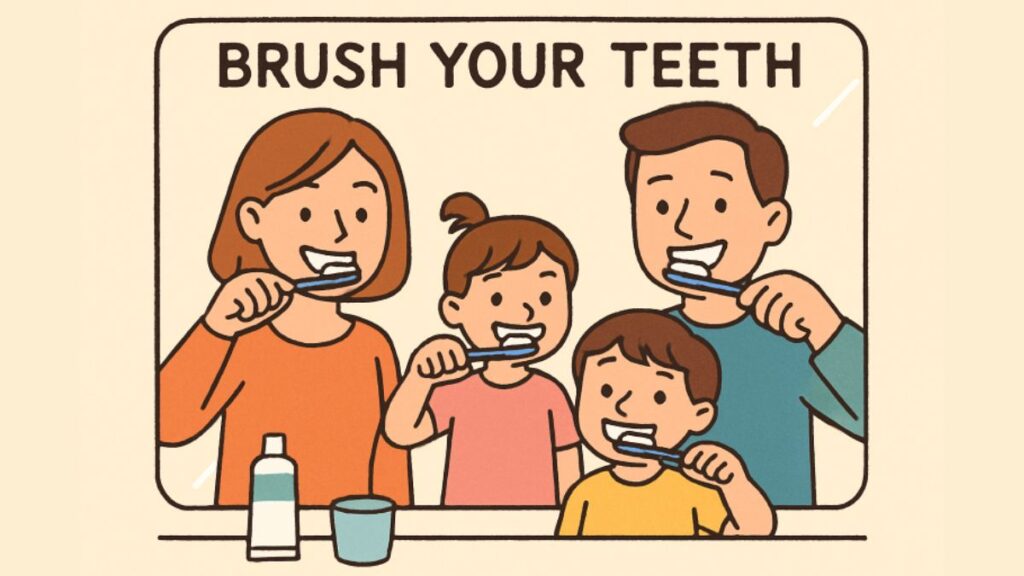Introduction
Building healthy dental habits is a crucial aspect of maintaining whole-family well-being. By practicing educated, proactive dental care for families together, you create a positive environment where everyone can enjoy strong oral health for life. Minor changes to daily routines and family priorities can set powerful examples and transform dental care from a chore into a valued ritual for all ages.
Instilling these habits while young lays the foundation for cavity-free childhoods, confident smiles, and fewer dental issues in adulthood. The following guide provides practical steps every family can take to protect and enhance their oral health together.
Start Early with Dental Care
Good oral hygiene starts even before a baby’s first tooth appears. After feedings, gently clean your baby’s gums with a soft, damp cloth to remove harmful bacteria. Once the first tooth emerges, switch to a child-sized toothbrush with soft bristles and use a dab of fluoride toothpaste no larger than a grain of rice. Brushing twice daily—morning and night—helps establish healthy habits early. According to the American Dental Association and the American Academy of Pediatric Dentistry, the first dental visit should happen by age one. Clinics such as Advanced Smiles Marion can help monitor early tooth and jaw development and address potential concerns promptly.
Make Brushing and Flossing Fun
Transforming oral care into an engaging activity encourages kids to participate willingly. Try these creative approaches to make brushing and flossing less of a task and more of an event:
- Let your children pick out toothbrushes decorated with their favorite characters or vibrant colors.
- Explore child-friendly toothpaste flavors to make brushing more appealing.
- Use a two-minute sand timer or play a favorite song to help children brush for the recommended time.
- Track progress and consistency with a reward chart—stickers or small prizes can offer added incentives.
These enjoyable practices help ensure that oral hygiene becomes an anticipated—and not dreaded—part of the family routine.
Establish a Consistent Routine
Regularity builds strong dental habits over time. Structure morning and evening routines so tooth brushing and flossing co-occur daily, such as after breakfast and before bedtime. Predictable scheduling helps reinforce oral care’s importance, making it an automatic part of daily life—just like getting dressed or reading before bed.
Lead by Example
Children naturally emulate adults and learn by observing. Let your kids see you brushing and flossing daily. Brushing alongside them reinforces healthy behaviors and offers quality bonding time. When parents show genuine enthusiasm about oral hygiene, children are likelier to develop equally positive attitudes.
Maintain a Balanced Diet
A nutritious diet is vital for healthy teeth and gums. Limit sugary snacks and beverages, as frequent consumption increases the risk of cavities and decay. Instead, encourage nutritious foods like crisp fruits, vegetables, cheese, and yogurt—these options are gentle on enamel and can even help scrub teeth clean. Drinking water, especially fluoridated water, instead of juice or soda, provides added protection by rinsing away food particles and bacteria. For more nutrition advice, visit the Centers for Disease Control and Prevention (CDC) resources.
Schedule Regular Dental Check-Ups
Routine dentist visits help prevent minor issues from becoming serious problems. Professional cleanings remove tartar that regular brushing may miss and your dentist can spot early signs of decay, misalignment, or gum issues. Schedule a dental exam for each family member every six months, as your oral health provider recommends. Establishing a relationship with a dental team makes check-ups less intimidating for children and provides support and guidance for parents, too.
Educate About the Importance of Oral Health
Children are more likely to value dental care when they understand its purpose. Use simple, age-appropriate explanations to teach kids how brushing and flossing protect their teeth from cavities and gum disease. Reading storybooks, watching educational videos, and exploring interactive games about dental hygiene can make learning fun and effective. Great resources for dental health education can be found at the American Dental Association’s MouthHealthy site.
Use Age-Appropriate Dental Products
Ensure every family member has dental products suited for their age and specific needs. Young children should use toothbrushes with small heads, soft bristles, and child-friendly handles. Choose fluoride toothpaste formulated and portioned for their age group to help protect growing teeth. As older children and adults’ needs change, adjust to products best suited for orthodontic care, sensitivity, or whitening as needed. Your dentist can help recommend products tailored to your family’s requirements.
Integrating positive dental habits into your family’s daily life can significantly improve lifelong oral health outcomes. Focusing on education, consistency, and fun empowers everyone in your household to value dental care as part of their regular wellness routine. With these steps, healthy smiles can genuinely be a family affair.






